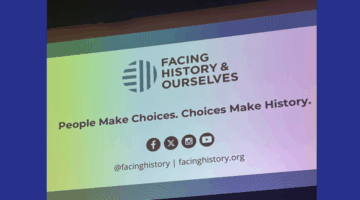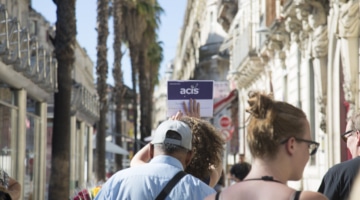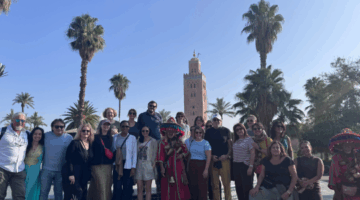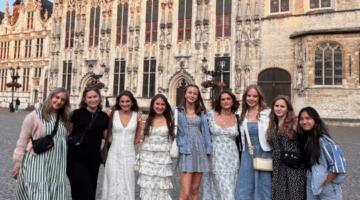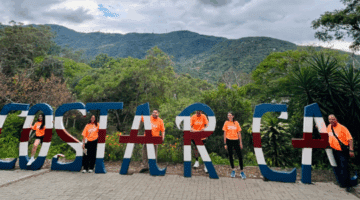Paying Travel Forward: A Conversation with AIFS Chairman Bill Gertz about The Cyril Taylor Charitable Foundation (CTCF)
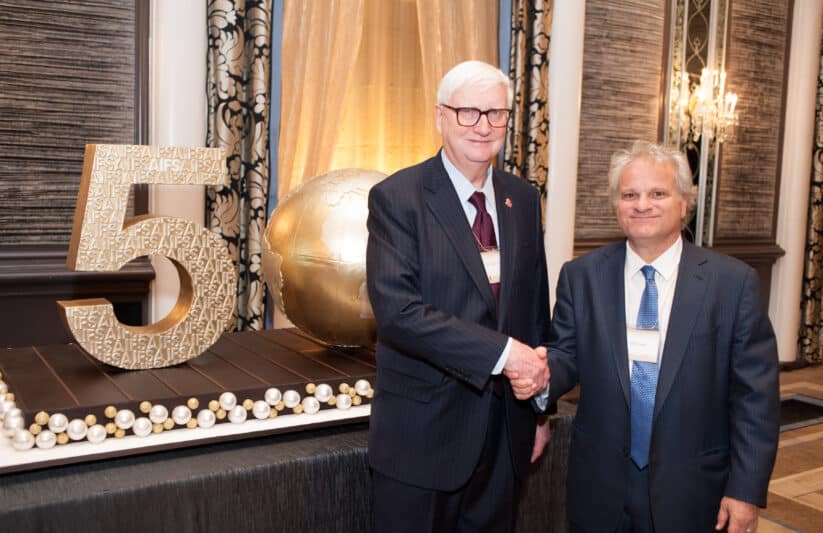
Did you know that ACIS’ parent company, AIFS, has a Foundation that annually provides financial support to education and travel non-profits? It’s called the Cyril Taylor Charitable Foundation (CTCF), named after the founder of the company, and it provides millions of dollars to organizations that support cultural exchange.
We spoke with Bill Gertz, Chairman of AIFS and Trustee of CTCF, about how the Foundation operates and the impact it has had on educational programs.
1. Tell us a little bit about CTCF’s history. What was the impetus for starting it?
AIFS has been in business for 60 years. It was the brainchild of Sir Cyril Taylor, who was the company Founder and the Chairman from 1964 until his death in 2018. As the sole owner, he thought a lot about what was going to happen to the company after he died. The management team had been in place for decades; he trained us well. He had a lot of faith and trust in us to continue the mission of AIFS, but he was also very passionate about ensuring opportunities for the next generation and helping young people see the world, especially those who could not otherwise afford to. About five years before he passed away, he started planning for AIFS’ next phase; he set up a non–profit called the Cyril Taylor Charitable Foundation.
2. How does CTCF work in terms of financial support?
The initial Foundation was fully funded with personal assets left by Sir Cyril. After many years as a business and education leader, he made a significant amount of money, but he never squandered his earnings. He never took a dividend from AIFS and wasn’t in the business of buying and selling other companies. It wasn’t who he was as a person. Ultimately, he wanted his funds to go toward making a positive impact in the world – “to do good” as he would often say. Even with all his business success, doing good in the world was his real legacy.
The partnership between AIFS and CTCF is clear. AIFS has annual dividends, which is the profit that remains after you’ve allocated the expenses to run the business (and allotted reserves in case of a “rainy day” like Covid). Every year at AIFS, all those dividends that, in an average corporation would go to shareholders, are deposited into CTCF.
This year, 2.5 million dollars went to CTCF. The Foundation then takes those funds and distributes them to selected organizations that meet the mission. The mission is and will always remain, supporting opportunities for travel and educational initiatives abroad.
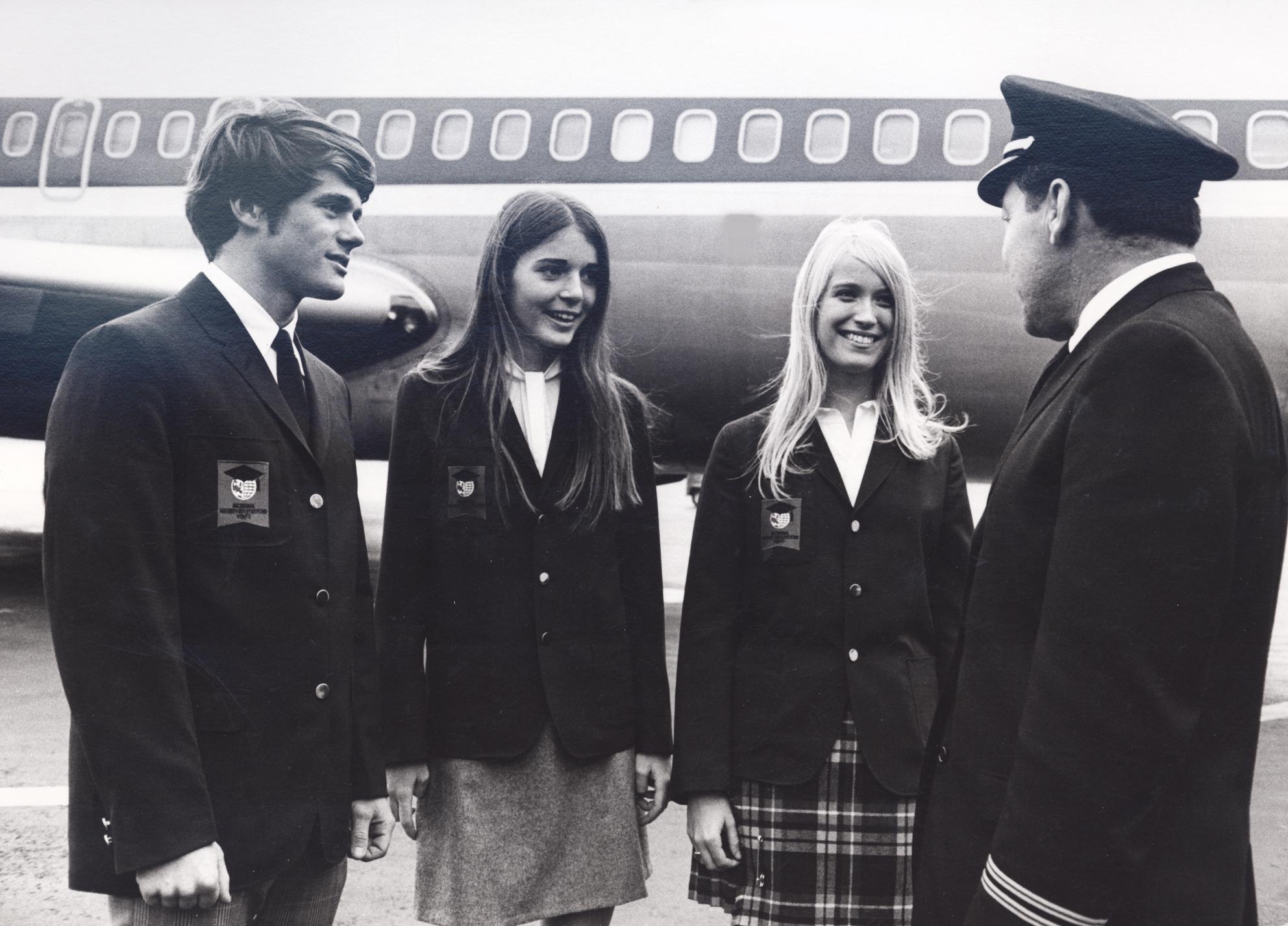
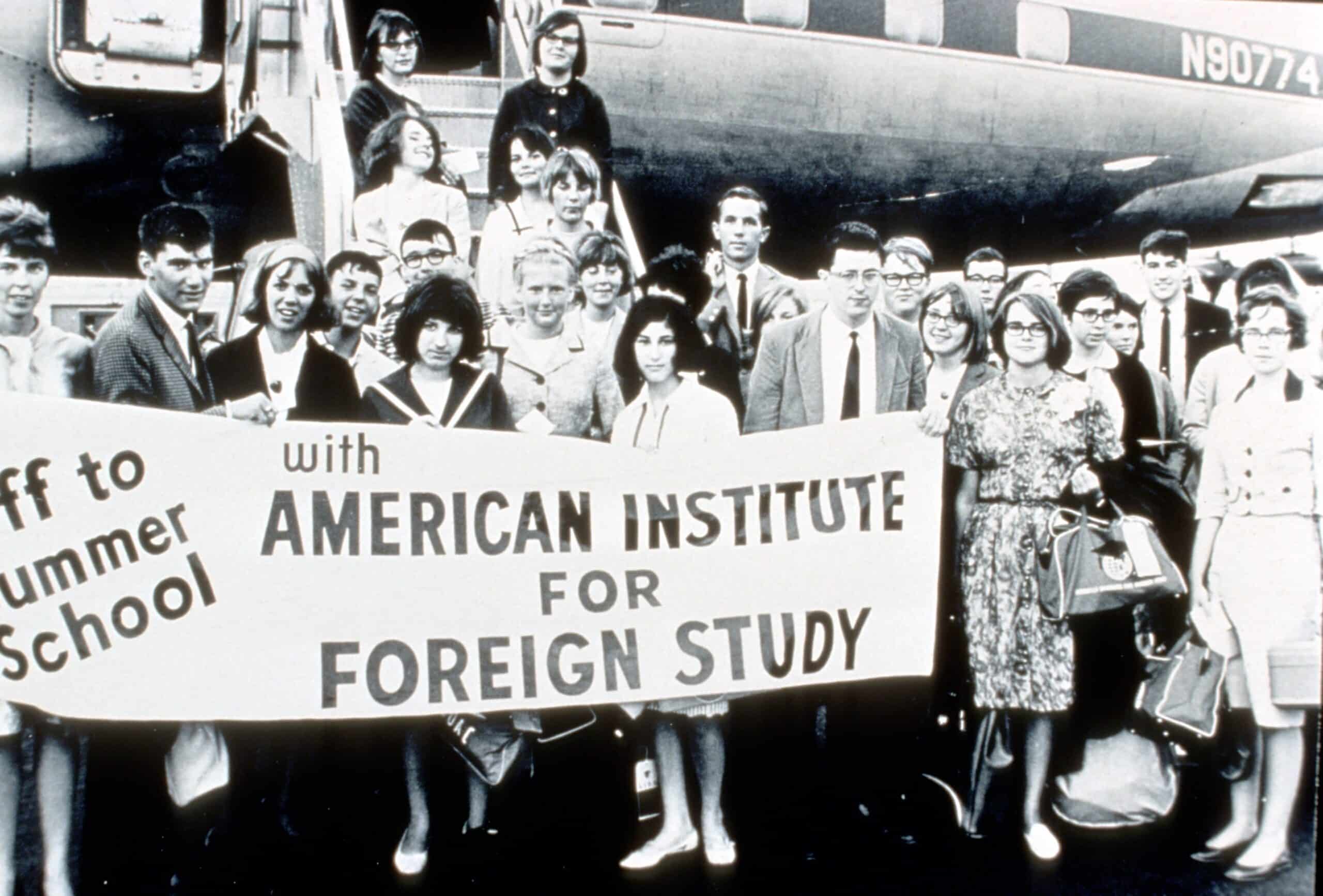
AIFS students in the company’s early history. Founded in 1964, AIFS celebrated its landmark 60th anniversary in 2024.
3. Tell us more about these organizations being funded by CTCF. How are they selected?
We’ve developed the list of organizations through good old-fashioned networking. This has worked well for us because CTCF doesn’t have permanent staff. We’re not looking for thousands of proposals every year – that would mean a big overhead, and Sir Cyril didn’t want funds going toward administration costs. He wanted all reserves to be distributed directly to scholarship aid so that we could help as many disadvantaged students as possible realize their dreams.
I am personally involved in the selection and approval of the organizations we choose. As the Chairman of AIFS, my main job is strategic planning for the entire organization as well as my work for CTCF identifying and meeting with organizations seeking grants. Any interested organization that has 501c3 status can apply to receive funding. Currently we work with 35 different charities across the US and the UK. And you don’t have to be a big organization to receive funds: Some of our smaller organizations receive grants of $5,000, which still makes a huge impactfor the recipients.
We love to support small charities because it’s grassroots work, and they’re all over the country – Denver, New York, they’re everywhere. Small charities are a particular passion of mine, but we also work with larger charities like the Institute for International Education (IIE). We partner with their IIE’s Emergency Student Fund, which supports international students in the U.S. who are financially devastated from natural disasters or the like.
For example, let’s say Japan experienced a tsunami while Japanese students were studying in America and their homes in Japan were wiped out and their resources destroyed. In this case, students would have no money coming from abroad. Partnering with the IIE, we would work to fund these students through their programs and help their families get back on their feet. These kinds of problems are more common than you’d think so it’s great that we can provide resources for students. While it’s not specifically travel related, it does promote our broader AIFS mission of connecting the globe and doing good in it.
3. What makes CTCF different than scholarship opportunities offered by other travel companies?
We’re unique in what we do. None of our competitors do anything like this; if they have scholarships, they’re given to their own students. That’s not the mission of CTCF. The funding is not for those going on AIFS (or ACIS) programs in particular. It’s for non-profit organizations, even those who might work with our competitors. And that’s okay with us! Because the idea behind this project is to get more students overseas and more diversity in these programs.
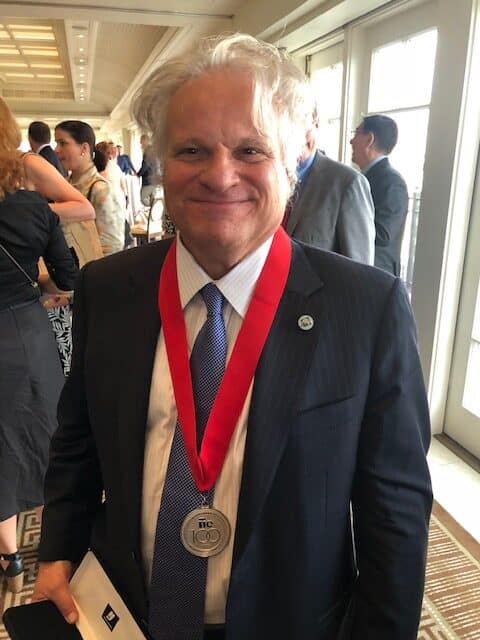
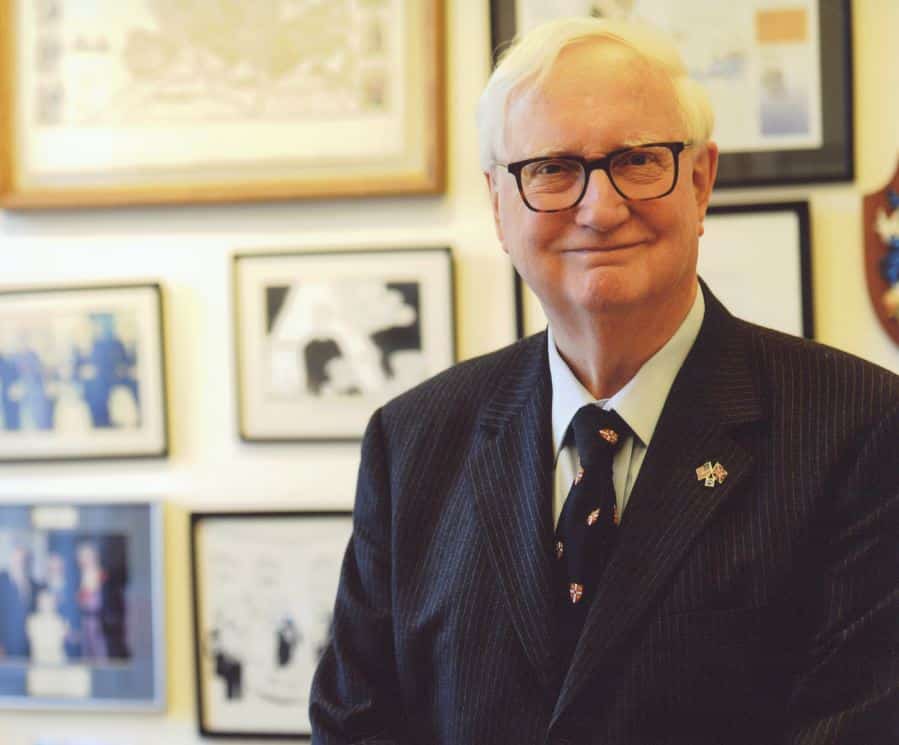
4. What has been the impact of these grants? Any specific stories that you can share?
IIt’s amazing how varied the organizations we work with are and the result is a wide array of positive outcomes. One of my favorite charities we work with is Teens of Color Abroad (TOCA). It was started by a Spanish teacher working at an inner-city school in Brooklyn NY who was inspired to generate opportunities for minority travelers. Through their efforts, more diversity in the pool of program attendees is achieved – and that’s the goal.
Then you have an organization like the IIE, with their Student Emergency Fund (which I mentioned earlier) where you can see first-hand the difference in students’ lives who have been impacted by truly terrible circumstances.
We try to strike the balance of being thorough on outcome measurement while also understanding that the smaller organizations may not have infinite resources. Every April, we review proposals and then by July, the funds are distributed. It’s an immediate receipt, too. We don’t want to get bogged down in bureaucracy. And after the programs are funded, the organizations provide us with an impact study to see what was successful and what can be improved. It’s a simple plan, and it works.
5. What do you see for the future of CTCF? Any next steps you would like to take?
Our organization is always evolving and even as we stick to the original mission of cultural exchange and promoting global peace, there’s always room to adapt our strategy. The non-profits we fund through CTCF are currently based in the US and the UK (even if they help students worldwide). In the future, we would love to see programs grow in varied, less common locations. We’re also interested in seeing the makeup of student travel expand and evolve; we would be happy to find even more organizations that support diversity in travel.
But just as it is now, the future of CTCF will be inspired by the students themselves. If AIFS keeps up its 60+ year track record of hiring passionate people who support the mission, we’ll be passing the baton to the next generation with excitement.
After all, this is “the good”. Sir Cyril would be proud.

